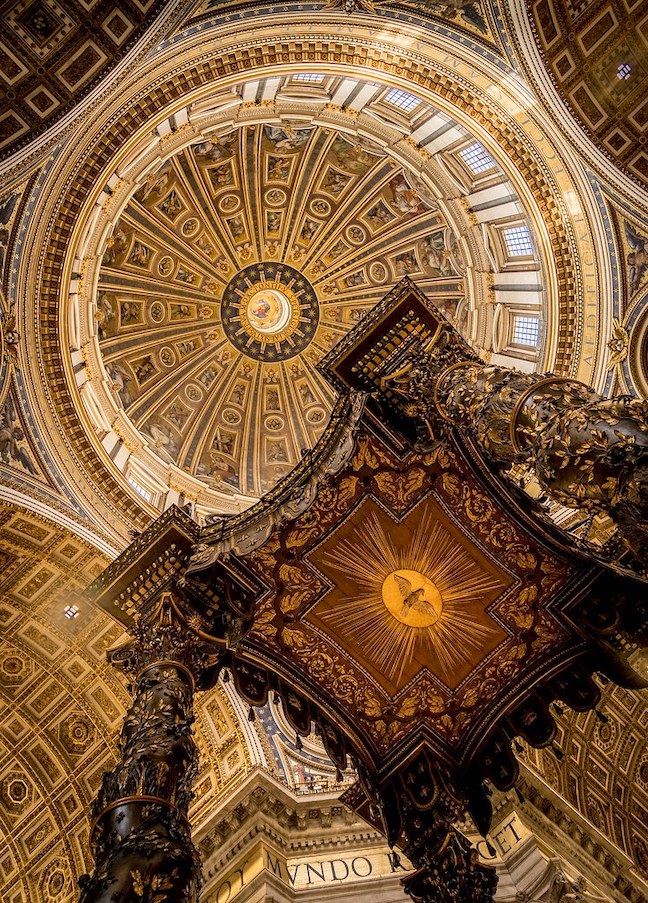Religion gets a bad rap in our secular, selectively judgmental society. The Dictators of Relativism claim that religion – and by that they usually mean Christianity – ought to be discarded because it is “divisive.” It separates people by forcing them to take sides. Lately, the old canards of the Crusades, the Inquisition, the European wars of religion, and religiously motivated imperialism have been joined by claims that religious services are immoral during the coronavirus threat and that calls to prayer distract from the real work of containing the virus.
From these accusations, old and new, the Dictators of Relativism conclude that society would be more peaceful and more united without religion and religiously inspired opinions to divide citizens from each other.
Given the realities of past religious conflicts and the current threat of coronavirus, it’s fair to consider their question: Is religion socially divisive?
Of course, it won’t help, when engaging the Dictators of Relativism, to point out that Christianity has been the greatest force for unity the world has ever seen, bringing together in harmony all sorts of peoples that had nothing else in common. For every religious war, history can find a dozen examples of Christianity uniting, not dividing, whole societies and the disparate peoples within them. And lately, so many selfless workers and volunteers have been working to stop the coronavirus and help the sick, precisely because they are motivated by their religious faith.
Nor will it help in debating the Dictators to note that the moral principles of Christianity – obedience to the Decalogue, adoption of the cardinal virtues, charity towards others, fostering of family life and education, stewardship of the environment – are precisely what any sane society would want – and would need – to flourish.
Nor are they moved by the obvious truth that secular societies have generated more than their share of conflict over the centuries. The French Revolution, Communism, and National Socialism are secular ideas that claimed to unite everyone under a single cause but instead caused horrible conflict, deep division, and extensive bloodshed.
No, we must answer the question on their terrain, amidst the mines planted against us.
As the prophet Isaiah foretold, Jesus Christ is the “prince of peace” who famously preached – and then showed during His Passion – that we should “turn the other cheek” and “love your neighbor as yourself.” That seems to be a formula for civic peace, if there ever were one.
Yet before He died, Jesus warned the apostles that “you are not of the world, but I chose you out of the world, therefore the world hates you.” (John 15:19) Hatred, a forbidden attitude in many quarters today, causes division, and Jesus clearly anticipated the animosity His disciples would face. If not, He would not have prayed to the Father that “they may be one, even as we are one.” (John 17:11)
Finally, the Lord, who defined Himself as “meek and humble of heart,” also made this arresting statement:
Do not think that I have come to bring peace on earth; I have not come to bring peace, but a sword. For I have come to set a man against his father, and a daughter against her mother, and a daughter-in-law against her mother-in-law; and a man’s foes will be those of his own household. He who loves father or mother more than me is not worthy of me; and he who loves son or daughter more than me is not worthy of me; and he who does not take his cross and follow me is not worthy of me. (Matt 10:34-38)

Is Jesus plainly saying that He came to be divisive and that those who profess His name are as well?
The answer, properly understood, is yes.
Jesus’ peace is not a facile civic tolerance by which everyone pretends to get along for fear of punishment. His peace, as St. John Chrysostom explains, is “when the disease is removed, when the cancer is cut away. Only with such a radical surgery is it possible for heaven to be reunited to earth.” That is, the peace Jesus brings is the truth, the only basis for a just civic unity. Only truth has the authentic power to guide society because it cuts away dangerous ideas that can lead a people to ruin.
Should Christianity be banned from society, then, since, by its founder’s own admission, it divides people?
The real problem is not religion, but ourselves who, with minds clouded by sin (the real cause of division in our world), cannot always clearly perceive – or want to perceive – the truth. Real unity is the house built on the rock of truth, which is personified in Jesus Christ.
Knowing our weaknesses, Christ has sent the Holy Spirit to guide His Church so we could get His teachings right. Individuals may misperceive the truth, including those within the Church, but the Church as an entity will not fail. Wars of religion are caused not by the true religion, but by individuals acting wrongly in religion’s name.
So we reply to the Dictators of Relativism: You do not want division because you do not want truth. And you do not want truth because you want to set the world according to your personal caprice, which is the disease that truth seeks to remove. The popular slogan, articulated first by Pope Paul VI, runs, “If you want peace, work for justice.” But there can be no justice without truth on which justice depends. Jesus Christ, the pope concludes, is our peace.
Christianity is divisive precisely because it exists to heal the world of a still deeper divisiveness: the separation of society from truth. The accusation of the Dictators of Relativism is precisely backward: A society that rejects Christianity is a house divided against itself that cannot, eventually will not, stand.
*Image: The Holy Spirit by Gian Lorenzo Bernini, c. 1660 [in the Baldacchino, St. Peter’s Bacilica, Vatican]















